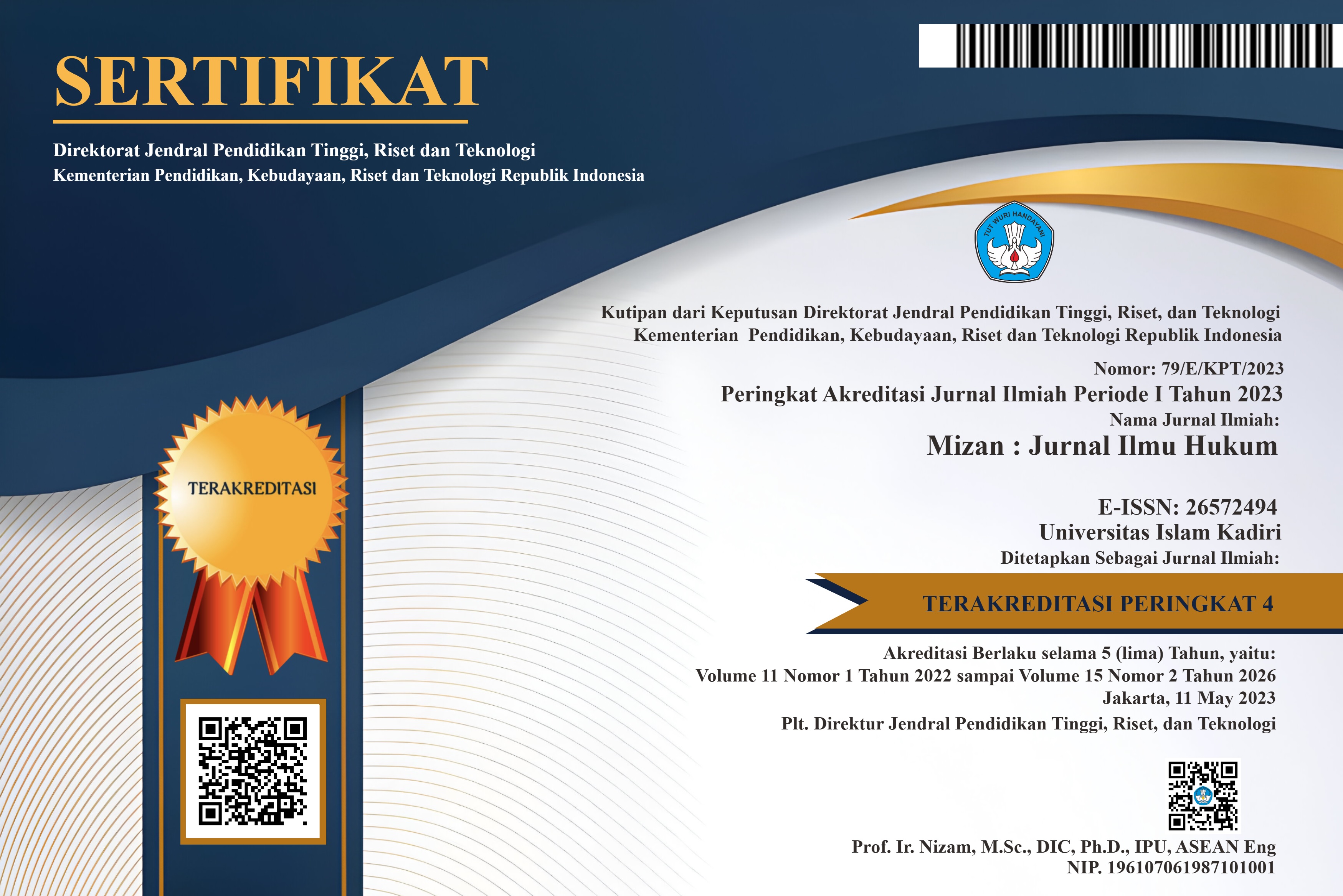ANALISIS YURIDIS PERTIMBANGAN MAJLIS HAKIM TERHADAP ALAT BUKTI DALAM KASUS PEMBAGIAN HARTA BERSAMA /GONO GINI (Analisis Putusan Pengadilan Tinggi Agama Surabaya Nomor 308/Pdt.G/2017/PTA.Sby)
Abstract
Division of joint property due to this divorce the authors want to review further that is by doing research on the Implementation of Sharing of Joint Property in Practice in High Religious Court Surabaya No. 308 / Pdt.G / 2017 / PTA.Sby The plaintiff/Appel made a legal effort ( Appeals) after the plaintiff/complaint lawsuit in the Religious Court of Nganjuk with the case number,1339/Pdt.G/2016/PA Ngj dated 5 April 2017 the rejectThe formulation of the problem in this thesis is: (1) What is the judge judge's consideration in the distribution of common property in the High Court of Religion Surabaya Number 308 / Pdt.G / 2017 / PTA.Sby? (2) How is the execution / execution of the sharing of common property in the High Court of Religion Surabaya in case No. 308 / Pdt.G / 2017 / PTA.Sby?The type of this research is Empirical law research which depart from the study of the validity of the Law is a legal research that examines the comparison between the Law Reality with Ideal Law.The results of this study are: (1) The distribution of joint property in the High Court of Religion Surabaya Number 308 / Pdt.G / 2017 / PTA.Sby conducted on the basis of Law Number 1 Year 1974 on Marriage and Compilation of Islamic Law, the assets acquired whether the husband or wife is a joint right so long as no other is specified in the marriage agreement and if the marriage is terminated, each is entitled 1/2 (half) of the property, because during the marriage there is a common property, the Judge here gives a decision on the magnitude part of each. The court shall determine the division of such joint property ½ (half) to the plaintiff and 1/2 (half) of the part for the defendant. (2) Implementation of the execution of the sharing of common property in the High Religious Court of Surabaya The case number 308 / Pdt.G / 2017 / PTA.Sby is voluntary by the parties because they are less concerned about the decision of the Nganjuk Religious court, because their main purpose (the plaintiff and defendant) is divorced








